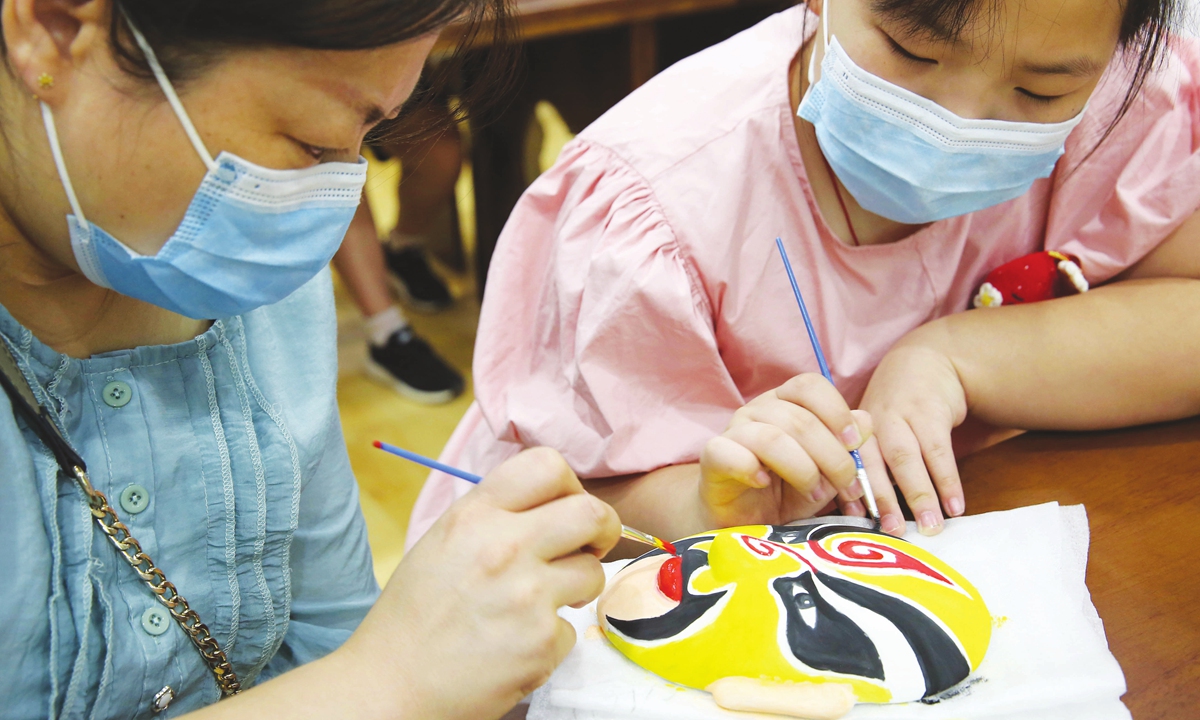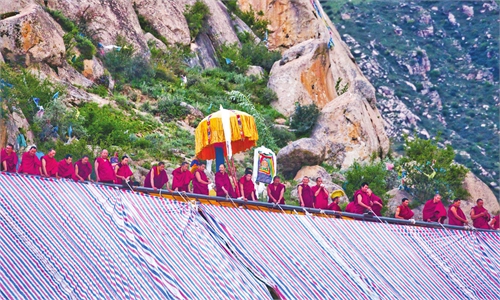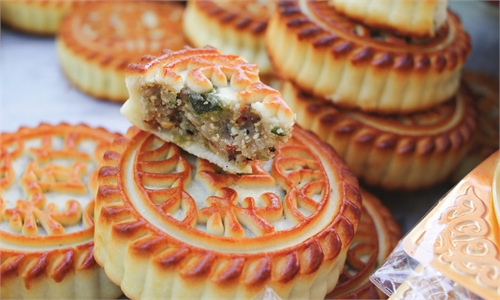ARTS / CULTURE & LEISURE
Cultural Heritage

Children in Lianyungang, Jiangsu Province learn to paint Peking Opera facial masks. Photo: IC
Peking Opera (II): An icon of traditional Chinese cultureFacial makeup is an art form loved by Peking Opera fans both at home and abroad, and is known as one of the icons of the traditional Chinese culture. Every kind of makeup has its own unique application method, but they are all based on one particular color with exaggerated, beatified, deformed or symbolic lines. The drawing mainly focuses on the five sense organs, especially the eyebrows, the eyes and the nose as well as each character's personality. Each historical figure or protagonist uses makeup with each color representing a particular character, which is easily identified. Specifically, a red face stands for positive, valiant, and loyal characters, black and blue faces for neutral, bold and forthright characters, and a purple face for honest characters; but yellow and white faces carry negative meaning, representing sinister, cruel and treacherous characters. While gold and silver faces stand for deities or ghosts.
There are more than 1,300 traditional scripts in Peking Opera, with around 200 that are commonly performed. The stories are mainly excerpts from classic literary works or legends linked to historical events, such as famous battles and love stories, and many of them are well known in China.
Peking Opera, which remains highly popular in China, also has won many fans from across the world, serving as an important means of introducing and spreading traditional Chinese culture. In 1929, maestro Mei Lanfang visited the United States, leading Peking Opera to shine on the Western stage. Mei's acting system has been called one of the three major acting systems in the world together with Stanislavskiy and Brecht. Over past decades, Peking Opera has been performed in many countries including the United States, Japan, France, Britain, Russia, Egypt, Argentina among others.
After the People's Republic of China was founded in 1949, Peking Opera was protected with the establishment of several troupes in Beijing, Shanghai, Tianjin, Hubei, Heilongjiang provinces and so on among others, a salvation for some classic plays and for the training of young actors.
These classic plays include such as Chinese Orphan, Farewell to My Concubine, and episodes of the famous Chinese novels Three Kingdoms, Outlaws of the Marsh and Journey to the West such as Havoc in Heaven about the Monkey King.
However, in the face of rapid social changes, Peking Opera is becoming more alienated from the interests of modern society. Like other forms of opera, it has suffered from falling interest from both younger audiences and performers alike with the diminishing number of traditional plays.
To inherit this national treasure, Peking Opera was listed as a national intangible cultural heritage in 2006, and registered on the UNESCO Representative List of the Intangible Cultural Heritage of Humanity in 2010.
Global Times



